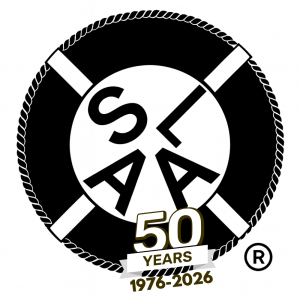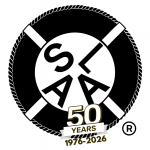Question One: Can an Intergroup elected ABM delegate raise funds to cover their expenses for attendance by independently hosting an S.L.A.A. workshop?
Question Two: Must S.L.A.A. workshops be sanctioned by an Intergroup to be called an S.L.A.A. Question Three: Is there a specific protocol on how 7th Tradition monies should be collected for this type of event? Should it be called something else?
Question Four: Can another S.L.A.A. member challenge the actions of the delegate who hosted the workshop?
Question Five: What would be the appropriate venue for such a challenge? At the business meeting of an individual group, or at the Intergroup meeting?
Some backstory:
- At the workshop, donations were collected from the participants.
- There was full transparency around the intentions for the monies raised.
- The workshop format and content were in alignment with the S.L.A.A. primary purpose and Twelve Steps / Twelve Traditions.
What guidance do the Twelve Steps, Traditions and Concepts provide for these questions?
Response #1:
Based on the limited information in the backstory, I don’t hear anything that overtly contradicts the Steps, Traditions, or Concepts. I will still answer each question independently.
Question One: Can an Intergroup elected ABM delegate raise funds to cover their expenses for attendance by independently hosting an S.L.A.A. workshop?
First, the traditions and concepts are not rules, only suggestions. If the ABM delegate was elected to represent their community and that Intergroup did not have the funds or was unwilling to cover all of the registration costs, it makes sense the delegate would need to raise money. It was also mentioned there was full transparency regarding how the money from the workshop was going to be used. There is a gray area in this situation. The delegate did not host the workshop on behalf of the intergroup, which means theoretically the delegate may not have accountability regarding how much money was raised or what it was used for since it was not raised on behalf of that intergroup. But it sounds like the delegate never claimed to be raising money on behalf of that intergroup, only their own attendance at the ABM.
Question Two: Must S.L.A.A. workshops be sanctioned by an Intergroup to be called an S.L.A.A. workshop?
Tradition 3 says “Any two or more persons gathered together for mutual aid in recovering from sex and love addiction may call themselves an S.L.A.A. group, provided that as a group they have no other affiliation.” It does not suggest that every group or event must be sanctioned by an intergroup. Tradition 4 says “every group is autonomous.” Even an SLAA workshop is autonomous from the intergroup, and there are many lone SLAA meetings, events, and workshops that don’t have the luxuery of a local intergroup. Tradition 2 says “There is but one ultimate authority, a loving God as this power may be expressed through our group conscience.” The intergroup has no authority over the workshop.
Question Three: Is there a specific protocol on how 7th Tradition monies should be collected for this type of event? Should it be called something else?
Reference Tradition 4 above says “Every group is autonomous” and Tradition 2 says “There is but one ultimate authority, a loving God as this power may be expressed through our group conscience.” That means the 7th tradition protocol is whatever that “autonomous” group decides by their “one ultimate authority.” In this case, it sounds like the members who participated in the workshop knew how the 7th Tradition would be used. 7th Tradition simply means we are self-supporting among our own members. This delegate did not ask an outside enterprise or individual to financially sponsor them as the delegate. They were using the money to participate in the business of the fellowship. My interpretation is that this is still the 7th tradition even if spent for individual attendance to the ABM.
Question Four: Can another S.L.A.A. member challenge the actions of the delegate who hosted the workshop?
I’m not sure how the submitter is using the term “challenge” here. Any member can bring concerns to their intergroup for discussion. If the intergroup elected the delegate as their representative, I imagine the delegate would be open to answering questions about the workshop.
Question Five: What would be the appropriate venue for such a challenge? At the business meeting of an individual group, or at the Intergroup meeting?
Again, I’m unsure how the word challenge is being used here. Does it mean discussion? Does it mean accusation? Does it mean a question? The most obvious venue to have a business discussion about funds raised for an intergroup delegate is at their intergroup meeting. Tradition 2 says “there is but one ultimate authority, a loving God…” The submitter has no authority over the delegate and vice versa. Tradition 1 says “Our common welfare should come first, personal recovery depends on SLAA unity.” To me, that means my personal recovery relies on my community staying unified. It’s important all business concerns are handled in a way that keeps the group, and its members unified.
Response #2:
Each meeting is autonomous; each person is autonomous – Tradition 4
If they were transparent then nothing “wrong” was done. The only way this could have been avoided further was through further communication and transparency, but the question states the person was transparent.
A delegate doesn’t need intergroup’s approval to fundraise, as a person doesn’t need intergroup’s approval to fundraise if they are being transparent. Fundraising is the wrong word though, if they are using Contributions from fellow members to carry out the primary purpose of SLAA.
7th Tradition states no outside contributions – These are not outside contributions, and they are being used for our primary purpose, so not controverting the traditions. Any group may call themselves an SLAA group if they are in line with the primary purpose of SLAA, and this was overall. – Tradition 3
The person airing their grievances at Intergroup is also in the right, as long as they are conforming to the format of Intergroup and are allowing the Secretary to run the meeting. This is in line with Concept 5, the Right of Participation
Response #3:
For Question One: Tradition Seven states that we are self supporting through our own contributions. The actions taken by the delegate appear to be in alignment with the principle of this Tradition.
For Question Two: There is nothing in the Twelve Traditions or Concepts indicating that an event must be approved through / by an intergroup. Individual meetings often have functions to raise money and / or help spread the message, and this event does not appear to be any different. As with the previous one, it appears to be very much in alignment with Tradition Seven.
For Question Three: Tradition Four indicates that each group should be autonomous, unless it would affect another group or S.L.A.A. as a whole. While an event hosted by a single fellow is somewhat unusual, I am not aware of any prohibition on it. The determination on how best to collect monies at an event would be decided by the group (or in this case the individual) hosting it, and I cannot see how that would affect any other group or the fellowship as a whole.
For Question Four: Concept Five provides the “Right of Appeal”. This allows for personal grievances to be heard and receive careful consideration. In keeping with this Concept, the concerned individual has the right to have their opinion heard.
For Question Five: Since the delegate is representing the local intergroup, that would seem to be the most appropriate venue to bring up the concerns about the event and the way funds were raised. Per Concept Four, the “Right of Participation” gives all members of the intergroup a voice and a vote. If the local intergroup felt some aspect of this event was in conflict with Traditions or inappropriate in some other way, they could vote to remove the delegate from the position.
Response #4:
1. As I understand, an Intergroup ABM delegate may host a workshop independently. Using funds to cover expenses for attendance may or may not be appropriate as funds are necessary and practical to self-support its obligations. If a member cannot afford the workshop ‘no one will be turned away’. Those who want to attend and freely donate, may.
2. The SLAA workshops ought to be sanctioned by an Intergroup to be called an SLAA workshop, ensuring the workshop aligns with SLAA primary purpose and its Steps, Traditions, Concepts.
3. The 7th Tradition suggests donations, transparency about the purpose of the donations be transparent.
4. Yes. An SLAA member may challenge the actions of the delegate as their HP may guide them.
5. At the Intergroup level would be the appropriate venue for such a challenge.
A gentle reminder is SLAA’s primary purpose is to carry the message to the still suffering addict. The Traditions ensures transparency with the focus on Experience, Strength, and Hope rather than self/promotion or personal gain.


